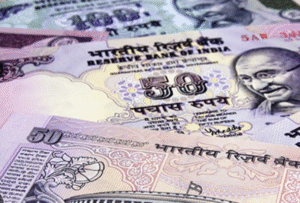$RSX $BTC $USDRUB
#Russia #Ukraine #Trump #Putin #Ceasefire #Stocks #Crypto #Oil #Geopolitics #Markets #Investing #Sanctions
U.S. President Donald Trump and Russian President Vladimir Putin are set to join a call shortly to discuss a 30-day ceasefire proposal aimed at pausing the ongoing war in Ukraine. This discussion is expected to have significant geopolitical and economic implications, particularly for global markets, energy prices, and investor sentiment. A potential ceasefire could ease tensions in Eastern Europe, bringing temporary relief to global equities while also influencing commodity prices, particularly oil and natural gas. Markets have been highly reactive to war-related developments, with investors seeking safe-haven assets such as gold and the U.S. dollar. If progress is made toward a ceasefire, traders may shift back to riskier assets, leading to rallies in equities, particularly in sectors sensitive to geopolitical risks such as energy, defense, and technology.
The Russian ruble ($USDRUB) and Russian stocks ($RSX) have faced extreme volatility since the start of the war due to sanctions and investor concerns over economic stability. A ceasefire agreement could offer short-term relief to these assets, potentially strengthening the ruble and lifting Russian equities. However, the effectiveness of this deal in stabilizing Russia’s economy remains uncertain, as long-term sanctions imposed by the U.S. and its allies may continue to weigh heavily on growth. Energy companies tied to Russian oil exports would likely see short-term gains if negotiations lead to a relaxation of restrictions, but sustained optimism will depend on whether broader geopolitical tensions ease. Additionally, any shift in the European stance on Russian energy imports could further influence global oil markets.
Cryptocurrency markets, including Bitcoin ($BTC), have also reacted to geopolitical news, as investors consider digital assets an alternative to traditional financial systems during crises. A ceasefire could reduce Bitcoin’s recent appeal as a hedge against instability, leading to potential fluctuations in its price. However, broader macroeconomic conditions, including inflation and central bank policies, will likely continue to influence digital assets. If negotiations between Trump and Putin lead to a stabilization of energy prices, the reduced inflationary pressures may temper interest rate hikes from the Federal Reserve, boosting investor sentiment in both traditional and crypto markets. Conversely, failure to reach an agreement could trigger further uncertainty, prompting investors to seek refuge in decentralized assets.
Market participants will closely monitor the outcome of these discussions, as a ceasefire deal could significantly impact global trade, energy supply chains, and investor confidence. If Trump and Putin manage to broker an agreement, sectors tied to European markets may experience positive momentum, particularly industries reliant on stable geopolitical conditions such as automotive, manufacturing, and financial services. On the other hand, defense stocks could see a pullback if optimism about de-escalation rises. Regardless of the immediate reaction, broader tensions surrounding NATO’s positioning and future Western policies toward Russia suggest that geopolitical risks will remain a defining factor in global financial markets in the coming months.










Comments are closed.